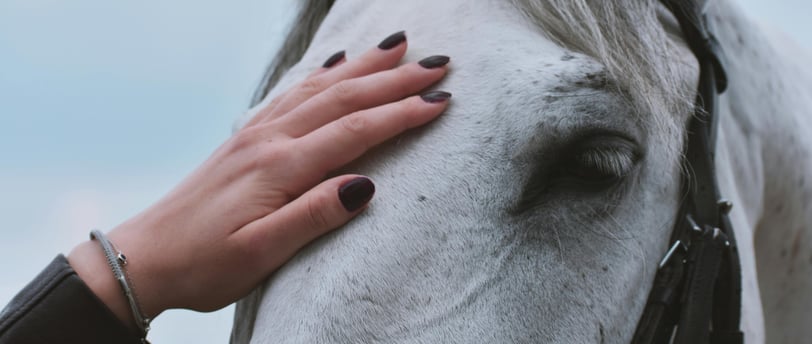Trust in Animals: A Bond Beyond Words
Why trust is so important between animal and owner..
3/27/20253 min read


TRUST IS ALL WHAT COUNTS!
Trust is a cornerstone of any meaningful relationship, whether between humans or across species. When it comes to animals, trust takes on a unique and profound dimension—one built not on spoken promises but on instinct, consistency, and mutual understanding.
From the loyal dog at our side to the wild horse that learns to accept a rider, trust in animals is both a remarkable phenomenon and a testament to the deep connections possible between humans and the natural world. But why does this trust matter, and what drives it?
The Nature of Trust in Animals
At its core, trust in animals is a two-way street. For an animal to trust a human, it must feel safe, respected, and understood. Animals, lacking the ability to communicate through complex language, rely heavily on their senses and instincts to assess whether a person or another creature is a threat or an ally.
A dog, for instance, might gauge trust through tone of voice, body language, or the predictability of a routine. A wild animal, like a deer or a bird, may come to trust a human who consistently offers food without harm.
Humans, in turn, place trust in animals for companionship, work, or survival. We trust a horse to carry us across rugged terrain, a search-and-rescue dog to find the lost, or a cat to keep pests at bay. This mutual reliance often transcends mere utility, evolving into an emotional bond that enriches both parties.
Why Trust in Animals Matters
Survival and Cooperation: Historically, trust between humans and animals has been essential for survival. Early humans domesticated wolves into dogs for protection and hunting, while relying on oxen or horses for agriculture and transportation. This trust wasn’t blind—it was earned through generations of coexistence, proving that animals could be dependable partners in a harsh world.
Emotional Connection: In modern times, trust in animals often serves a more emotional purpose. Pets become family members because they offer unconditional loyalty and affection. A 2021 study from the American Psychological Association found that pet owners who trust their animals report lower stress levels and higher life satisfaction, highlighting the mental health benefits of these bonds.
Lessons in Empathy: Trusting animals teaches humans to step outside themselves. To earn an animal’s trust, we must adapt to their needs—patience with a skittish cat, gentleness with a nervous horse, or consistency with a parrot learning to perch on a hand. This process fosters empathy, a skill that extends to human relationships as well.
A Mirror to Ourselves: Animals reflect our capacity for trust. When a neglected dog learns to wag its tail again or a rescued elephant calf nuzzles its caretaker, it reveals the resilience of trust even after betrayal. These stories remind us that trust can be rebuilt, offering hope in a world often marked by skepticism.
What Drives This Trust?
The roots of trust in animals lie in both biology and behavior. Evolutionarily, many species are wired for social bonds—think of wolves in a pack or dolphins in a pod. Humans, as social creatures ourselves, tap into this instinct. Oxytocin, the "bonding hormone," plays a role too; studies show it spikes in both dogs and their owners during moments of mutual gazing, reinforcing trust on a chemical level.
Consistency is another key. Animals thrive on predictability—feed a stray cat every day, and it’ll start waiting for you. Betray that routine, and the trust erodes. This simplicity contrasts with human relationships, where trust can be muddied by words or hidden motives. With animals, actions speak louder than anything else.
The Fragility and Strength of Trust
Trust in animals isn’t unbreakable. Abuse, neglect, or sudden aggression can shatter it, sometimes irreparably. Yet, when nurtured, it’s astonishingly resilient. Consider the wild mustang, wary of humans after years of freedom, gradually accepting a saddle through patient training. Or the shelter dog, once abandoned, now sleeping soundly beside its new owner. These examples show that trust, though fragile, can grow stronger through time and care.
Why It’s Worth It
Ultimately, trust in animals matters because it connects us to something primal and pure. In a world of digital screens and fleeting interactions, animals offer a grounding presence—an unspoken pact that says, “I’m here for you, and you’re here for me.” Whether it’s the quiet companionship of a rabbit or the exuberant greeting of a dog, these bonds remind us of our shared place in the natural order.
So why trust animals? Because they teach us to trust ourselves—to be reliable, patient, and open. In their eyes, we see not just loyalty, but a reflection of the best parts of humanity. And that, perhaps, is the most compelling reason of all.
